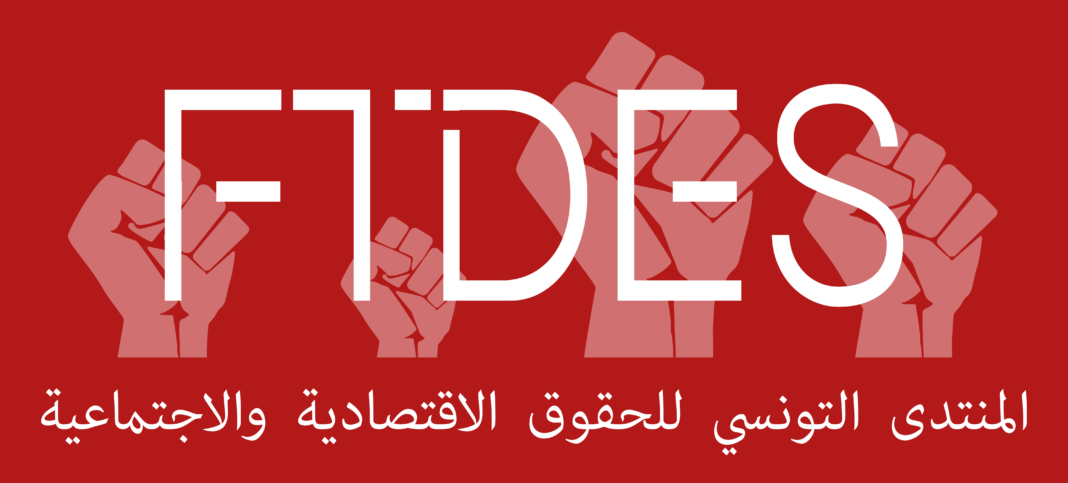World Refugee Day Statement
As the world marks World Refugee Day, remembering the suffering of millions who have been forcibly displaced from their homes by war, tyranny, climate change, and discrimination, this occasion is marked in Tunisia by ongoing “national shame” in the form of a systematic policy of racism and repression towards refugees, asylum seekers, and all displaced persons.
Tunisia, which has always celebrated the abolition of slavery and the enactment of a fundamental law on the elimination of all forms of racial discrimination, is today reneging on its African, Arab, and international commitments regarding the status of refugees, deliberately obstructing the processing of asylum applications, and continues to humiliate victims of forced displacement and statelessness. The Tunisian authorities are not content with inaction; they go even further: they criminalize solidarity, repress activists, and close down civil space.
Most refugees and asylum seekers in Tunisia continue to live in inhumane and degrading conditions, especially women and children, without the right to housing, work, health, or education. They are evicted from their homes, threatened with violence, and deprived of their livelihoods, as if they were enemies against whom the state has declared war. These repressive policies have resulted in widespread flight, with the number of people registered with the Tunis office of the UN High Commissioner for Refugees falling from 18,362 in June 2024[1] to 10683in May 2025[2].
Today, we also remember the Tunisian men and women who fled their country because of their opinions, positions, identities, or civil and political activities, or because of the absent guarantees of fair trial. By the end of 2024, their number had reached 15,022.[3] Let us work harder to ensure that no one in Tunisia is persecuted for these reasons.
In line with this repression, the attack on civil society is intensifying: associations are being shut down, activists are being arrested, and the most basic conditions of justice are absent. All this simply because they believed in the human right to life and dignity, regardless of color, nationality, or identity.
The Tunisian Forum for Economic and Social Rights thus demands:
- The immediate halt of policies of expulsion, starvation, and repression targeting refugees and migrants under the pretext of enforcing national laws, and respect for Tunisia’s obligations under the Organization of African Unity Convention on Refugees, the Arab Convention on Refugees, the Geneva Convention, and its supplementary protocols.
- Comprehensive reform of the legal system to guarantee the rights of all without discrimination based on legal status or nationali
- The creation of safe and dignified shelter alternatives for refugees, asylum seekers, and stateless persons who are displaced.
- Release refugees and asylum seekers detained on administrative grounds and release victims of policies criminalizing civil action: Mostfa Jamali, Abderrazak Krimi, Cherifa Riahi, Saadia Mosbah, Iadh Bousalmi, Mohamed Jouo, Iman Wardani, Mohamed Ikbal Khaled, Abdallah Said, and Salwa Ghrissa.
In light of its shameful performance in Tunisia, the Tunisian Forum for Economic and Social Rights also holds the Office of the High Commissioner for Refugees responsible for the situation of refugees and stateless persons and its complicit silence regarding what they are subjected to in Tunisia. We call on it to mobilize all its resources and energies to resettle refugees stranded in Tunisia.
the Tunisian Forum for Economic and Social Rights affirms that the struggle for freedom, dignity, and solidarity cannot be suppressed or criminalized, but rather will continue to grow and take root. Tunisia is a land of solidarity and cooperation. Refugees are not enemies, and activists are not criminals.
We will not remain silent. We will resist. We will continue to raise our voices until solidarity is achieved.
We will not be silent. We will resist. And we will continue to raise our voices until solidarity is achieved.
Tunisian Forum for Economic and Social Right
President: Abderrahmane Hedhili
[1] https://data.unhcr.org/fr/documents/details/109621
[2] https://data.unhcr.org/fr/documents/details/116934
[3] https://www.unhcr.org/where-we-work/countries/tunisia

 Français
Français العربية
العربية







